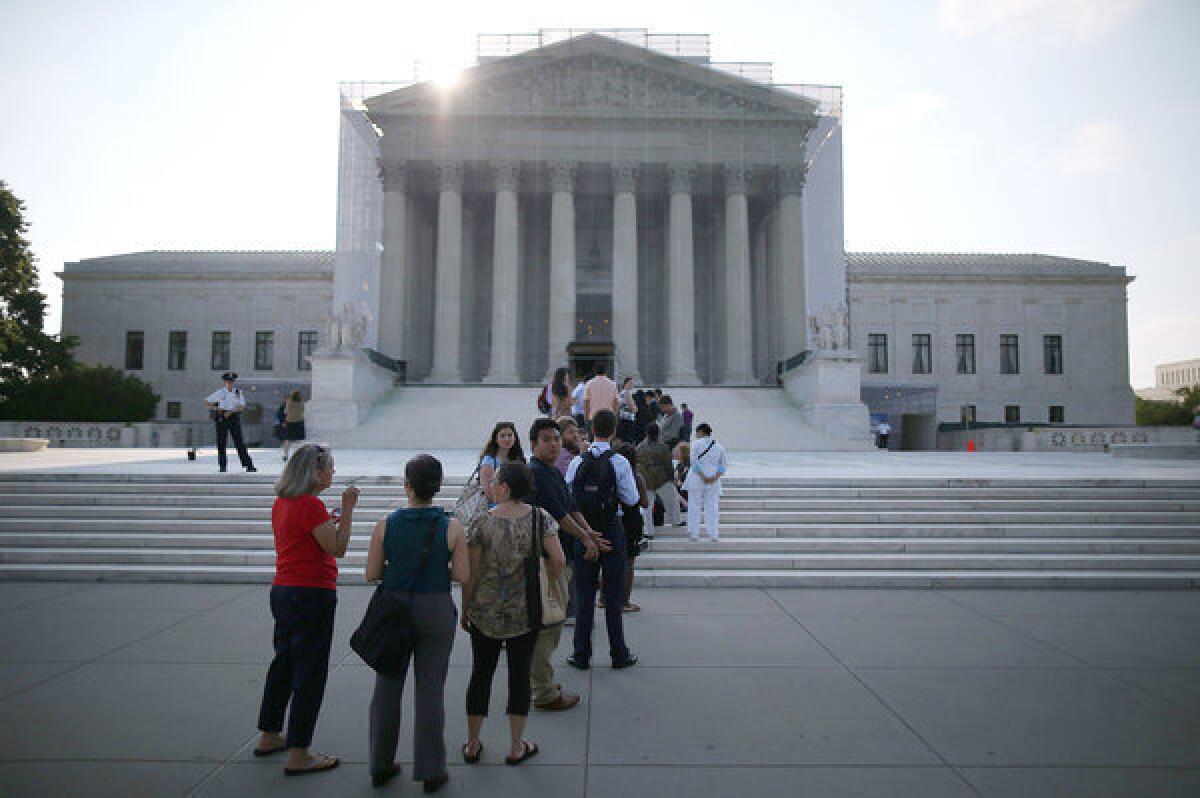Supreme Court tells Oklahoma to review abortion pill law

- Share via
WASHINGTON — The Supreme Court told the high court of Oklahoma on Thursday to clarify a new state law restricting the use of the RU-486 abortion pill, setting the stage for a possible future ruling on how far states can go in regulating the practice of abortion.
Legislators in several states, including Oklahoma, have passed laws to strictly regulate the practice of abortion. Among them are measures that require all women seeking abortions to undergo an ultrasound test. Oklahoma also adopted a law restricting the use of RU-486.
But the Oklahoma Supreme Court blocked these laws from taking effect, saying they conflicted with a 1992 Supreme Court decision on abortion.
The justices, in their last meeting until late September, granted in part an appeal from Oklahoma Atty. Gen. Scott Pruitt on Thursday, but then sent the case back to Oklahoma for the state court to further explain how the RU-486 law would work in practice.
PHOTOS: 2013’s memorable political moments
The court’s action will put off consideration of the issue until the state court acts.
At issue ultimately is the meaning of the high court’s 1992 decision in Planned Parenthood vs. Casey, which upheld a woman’s right to choose abortion, but said states may regulate the practice, so long as they do not put an “undue burden” on the patients or their doctors.
The justices did not closely define what regulations were permitted, and they have largely stood aside since then. Their only major abortion ruling in recent years upheld the federal law that prohibited late-term abortions.
Besides Oklahoma, Louisiana, Texas and North Carolina have adopted laws requiring women to undergo ultrasound tests for nearly all abortions, even if they and their doctor object.
The two sides in the Oklahoma case differ sharply on the law regulating mifepristone, or RU-486. The state says it wants doctors and patients to follow the federal guidelines in using the drug. State lawmakers said they were seeking to protect the health of women.
Lawyers for the Center for Reproductive Rights said the regulations, if put into effect, would prevent women from using the abortion pill. “The statute at issue here effectively bans all abortions using medication, rather than by surgery,” they told the high court.
ALSO:
GRAPHIC: Gay marriage in the U.S.
PHOTOS: Supreme Court rules on Prop. 8 and DOMA
DOCUMENTS: Supreme Court decisions on DOMA, Prop. 8
Follow Politics Now on Twitter and Facebook
More to Read
Get the L.A. Times Politics newsletter
Deeply reported insights into legislation, politics and policy from Sacramento, Washington and beyond. In your inbox twice per week.
You may occasionally receive promotional content from the Los Angeles Times.











